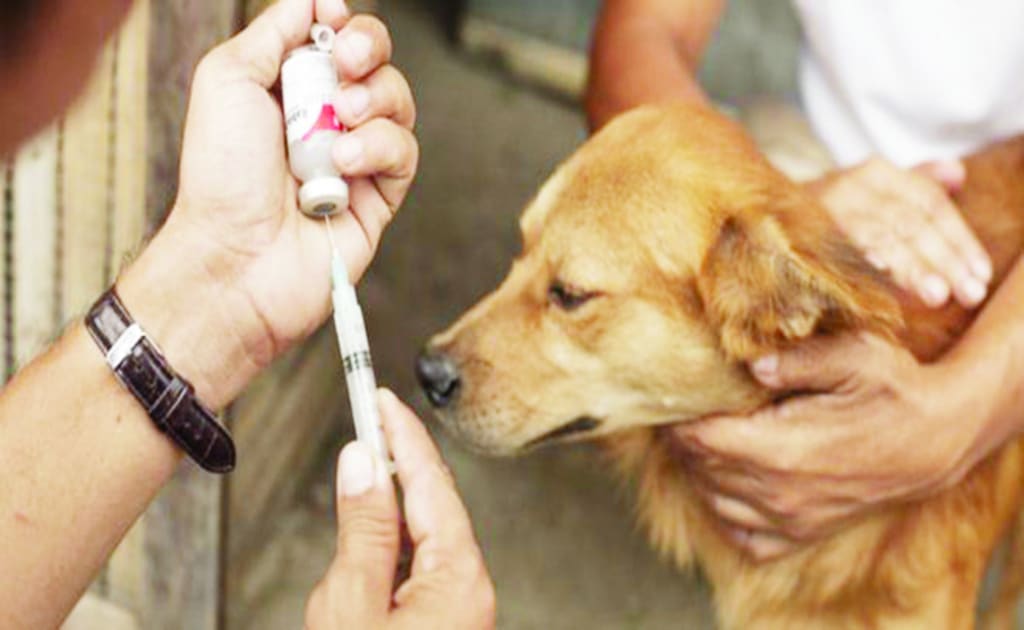
All dogs, cats, and humans, are susceptible to the lethal viral disease rabies. It kills tens of thousands of individuals each year throughout the world and is spread to other animals by a bite or scratch.
In the United States, fox, raccoon, skunk, canine (coyote and dog), and bat populations all have rabies. Rabies primarily affects the neurological system and is transmitted by rabid animal bites via saliva or mucous membranes.
Even though canine rabies has mostly been eliminated in the United States, domestic animals like dogs, cats, cattle, horses, and people can still contract the disease from an infected animal. The greatest approach to safeguard everyone is to make sure rabies vaccine dose for dogs.
Symptoms of Rabies
The length of time it takes for symptoms to appear, or the incubation period, is very diverse and dependent on a number of variables. These factors include the age of the animal that was bitten, the distance between the bite and the nervous system, and the quantity of the virus that was ingested.
The incubation period is from three to eight weeks for the majority of domestic species, but it can also be as little as nine days or as much as a year or more. The rabies virus infects and reproduces in the neurological system, resulting in the rabies clinical symptoms.
The excitatory form of rabies and the paralytic form are the two types. Animals don't always go through both stages, and the symptoms can change.
Vicious, unpredictable actions
The mouth is foaming
Increased sensitivity to auditory and visual stimuli
Weakness
Paralysis
A respiratory failure-related death
In most cases, rabies causes mortality 3 to 8 days after the first sign of illness. For rabies, there is no cure. The good news is that this disease is easily avoidable by giving pets a rabies vaccine.
Rabies Vaccine Dose for Dogs
Because vaccines promote adaptive immunity, which is antigen-dependent and antigen-specific, the rabies vaccine specifically protects against contracting rabies. Vaccines must shield at least 88% of immunized animals against virulent virus challenge in order to receive a license in the US. There are numerous vaccines approved for use in domestic animals, and dogs can use vaccines that have been inactivated (killed).
Cats can have recombinant virus-vectored products, and wild animals can get oral modified live vaccinations, but these alternatives are not better than the inactivated rabies vaccine dose for dogs.
Should My Dog Get a Rabies Vaccination?
Yes! Respecting local laws and regulations and doing what is best for your pet's health are both essential components of responsible pet ownership. A step in that process is making sure your dog has had the appropriate rabies vaccination. In most states, the only vaccination that is mandated by law is the rabies vaccine for dogs.
The rabies disease is dangerous. A living human or animal cannot be tested to determine whether they are infected, and once symptoms start to manifest, the disease is nearly invariably fatal.
In most states, rabies vaccine dose for dogs is mandated by law. State law may demand that your dog be detained for a lengthy amount of time or even put down if it is not current on its rabies vaccinations and is bitten by an animal in order to protect other animals and people. This is why it's critical to maintain the efficacy of your dog's vaccines.
Rabies Vaccine Schedule for Dogs
While state and municipal laws differ, the American Animal Hospital Association (AAHA) states that normal recommendations call for giving dogs no younger than 3 months of age a single dose of lethal rabies vaccine through injection under the skin or into the muscle.
Between 12 and 16 weeks of age, puppies often receive their first rabies vaccination, which triggers the production of antibodies by the immune system. Regardless of the dog's age, a second single dose of the rabies vaccination is given a year later. Afterwards, it is given every three years.
To Read the Full Article, Click Here: Rabies Vaccine Dose for Dogs
About the Creator
Rocky
Addyourlife.com is pleased to provide reliable, comprehensive, thought-provoking information on important topics worldwide without regard to bias or personal agendas.
https://addyourlife.com/






Comments
There are no comments for this story
Be the first to respond and start the conversation.